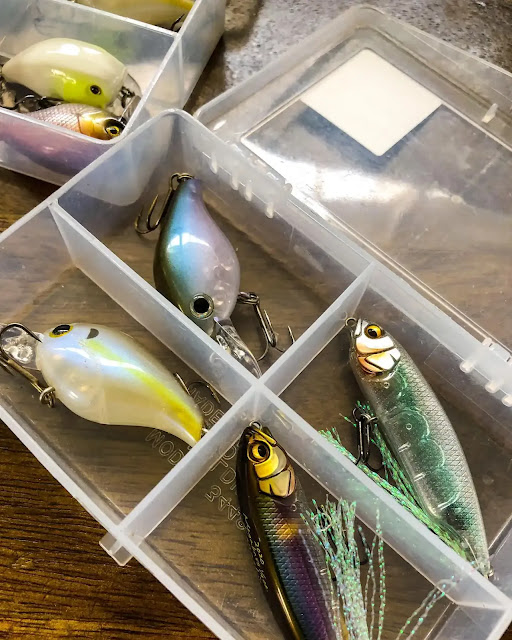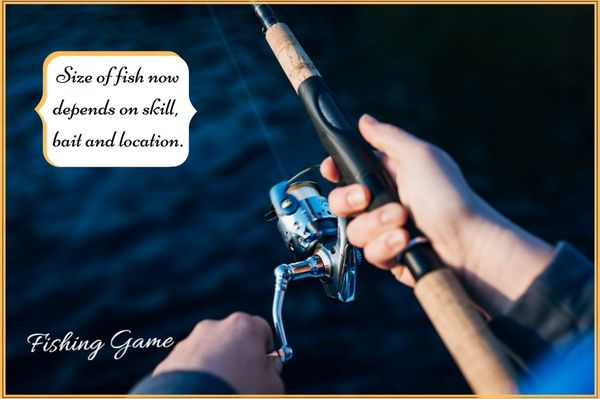What is the Best Bait?
The largemouth bass is considered to be the best bait for catching a variety of fish species. With so many varieties of bass types, it can be hard to know where to start. With this in mind, let's take a look at some of the most popular largemouth bass baits on the market today and how they were designed for specific purposes. One of the most popular bass fishing tactics is to throw a spinner bait. In this technique, you'll be using a spinning lure with an offset weight.
This weight helps push the lure through the water in an erratic manner, making it easier for fish to see and react to them. Spinnerbaits are typically made from plastic and come in a range of colours, but natural baits like worms, crickets and nightcrawlers can also be used. One of the most common and effective tactics is to use a crankbait.
This means you'll be using a small lure that's designed to resemble a baitfish on the end of a fishing line. Crankbaits typically have three "jig eyes" that create a lifelike movement in the water. The depth of the body is usually only a few inches, meaning it's easy for baitfish to get caught up in them. This makes crankbaits ideal when fishing over submerged wood and vegetation. Another popular tactic is using soft plastic baits like jigs and worms on a regular basis.
What are the Top 5 Largemouth Bass Baits You Should Be Using to Catch a Big Bass?
The largemouth bass is great game fish that can add a lot of excitement to your fishing and they are a great game to be caught. The key to catching largemouth bass is choosing the right lure and bait. There have been a lot of questions about which baits are best for largemouth bass so we thought it would be beneficial to compile a list of the top 5 LMB baits that you should be using. You should always go with the best bait on the market because there is always competition out there and you lose your chance if you don't know what type of lure will catch largemouth bass.
1. Crankbaits: Crankbaits are a type of lure that fish use to make noises and the bass will bite them because they believe the crankbait is some type of real bait. The best part about using a crankbait is that you can really just put it in any body of water and you will be able to catch bass.
2. Spinnerbaits: Spinnerbaits this type of lure is similar to the crankbait but with a spinning blade on the front to entice a bass to bite it. These are two of the most popular baits when it comes to catching largemouth bass because they are easy and people love them. They also work in lakes, rivers and marshes because the spinnerbait has a wide design.
3. Jerkbaits: Jerkbaits are normally used when bass fishing on the docks because they have a lot of places to get a bite and the fish will be more attracted to them than other types of bait. They also have a rattle that attracts bass and they look like frogs, so you know they are going to catch a lot of basses.
4. Spoons: Spoons are the bait that you usually use when fishing with a bobber because they have an extended lip on the end that fish can get onto and are easy to cast when using one of these baits. Spoons usually come in several different colours, so it is easy to see if you are getting bites or not.
5. Worms: Worms are a great bait for catching bass because they will help you get into the denser parts of water to catch bass, which are hard to find in thinner areas. They also have a good profile and create an erratic action that some fish can’t resist eating.
Top 5 Tips for Successful Bass Fishing with Plastic Worms
The top 5 tips for successful bass fishing with plastic worms are:
1. Cast your LMB plastic worm near the bottom of a lake or pond. This is where fish tend to be more active and visible.
2. Use colours and patterns to help attract fish to the water. Different colours attract different types of fish, so try using plastics with contrasting colours (if you’re targeting pike, use orange-and-black worms; if you’re targeting bass, use white-and-blue worms).
3. If you can’t find baitfish to catch, then use a homemade concoction of canned corn, cornmeal and coffee grounds for baitfish flavour in your lure or live well.
4. Bring along an extra set of lures and a tackle box for backup.
5. Use a stronger hook, like a Gamakatsu or Mustad #4/0, to ensure that your lure doesn’t easily come off the hook when you’re not ready to reel in your catch.
Top 5 Tips for Successful Bass Fishing with Plastic Worms and Jigs in 2023
The following are the top 5 tips for successful bass fishing with plastic worms and jigs in 2023.
- Patience is the most important skill when it comes to fishing. It is a hard thing to do but most people in the industry agree that it's worth it if you want to catch more fish over time.
- Read your bait thoroughly before every fishing trip. Make sure you know what type of bait works best for what type of fish and location. More importantly, make sure your bait is safe for use by checking the label before purchase.
- Keep your lures from tangling up with each other by always keeping them free from any hook ties, wire, etc. That might be on them before you put them in the water.
- Keep in mind that certain baits work better at certain times of the day. That doesn't mean that they won't be better during other times, just know the timing and keep an eye out for weather changes.
- Make sure to cast your lure out into the water slowly and not just rip it away from you. This will make it easier for the bait to fall into a good spot and give you more time to adjust your hook.
- Lastly, always have confidence in yourself. If you are confident that you are doing everything right and that the fishing is going well, then this will help others around you.
Top 5 Tips on How to Catch A Big Largemouth Bass With a Berley Fart
There are many methods that can be used by a bass fisherman to catch large largemouth bass. One of them is berley farting method. It is an action plan that requires the use of a boat and a fishing rod.
Largemouth Bass Fart Method: Bait your rig with worms or cut bait, or set up in shallow water anywhere from 1-4 feet deep. Since you are fishing for deeper water, you will need to lure the bass in before making your first cast, this may take minutes or hours depending on the time of day and location you are fishing at. Once you have lured one bass to your area, go back and set up for another lure on the opposite side of where you first caught it. You should now see your first bass with its mouth open as it swims towards the second lure.
Cast your rod and reel towards the lure, letting the bait get close to it before making your first strike with a firm but not too fast action. Once you have a strike, let out some slack as soon as possible, then quickly set the hook. There are many methods that can be used by a bass fisherman to catch some of the largest basses ever caught, one of which is to make a worm-like lure that is designed to imitate a bass-eating worm. A "worm" can be made from either live worms or plastic worms.
Catch a Big L
The largemouth bass is one of the most efficient game fish that you can catch with a variety of different types of baits. However, the type of bait you should use will vary depending on the time and place you’re fishing.
Catch a Big L is a podcast about catching largemouth bass in North America. In this 2-minute episode, host Rich Evans discusses different types of baits to go with your rod and reel setup for big bass. The most popular bait for largemouth bass is cut bait. This is a live shrimp that has been split in half and put on a jig head or in small pieces of bread. You can also use worms, frog legs, or even plastic lures with a bit of meat in them like mice. If you're fishing the shallow water near vegetation where the bass is, try a jig and weedless trailer like a Zara Spook.





















































.png)













